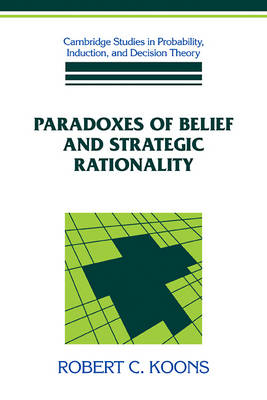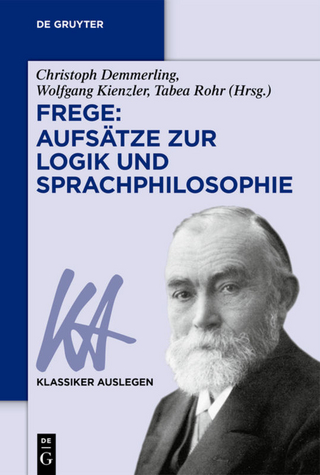
Paradoxes of Belief and Strategic Rationality
Seiten
2009
Cambridge University Press (Verlag)
978-0-521-10059-5 (ISBN)
Cambridge University Press (Verlag)
978-0-521-10059-5 (ISBN)
The author argues that a logical paradox lies at the root of a number of persistent puzzles in game theory, in particular those concerning rational agents who seek to establish some kind of reputation. This analysis provides an understanding of how the rational agent model can account for the emergence of rules, practices and institutions.
This book develops a framework for analysing strategic rationality, a notion central to contemporary game theory, which is the formal study of the interaction of rational agents and which has proved extremely fruitful in economics, political theory and business management. The author argues that a logical paradox lies at the root of a number of persistent puzzles in game theory, in particular those concerning rational agents who seek to establish some kind of reputation. Building on the work of Parsons, Burge, Gaifman and Barwise and Etchemendy, Robert Koons constructs a context-sensitive solution to the whole family of liar-like paradoxes including, for the first time, a detailed account of how the interpretation of paradoxical statements is fixed by context. This analysis provides an understanding of how the rational agent model can account for the emergence of rules, practices and institutions.
This book develops a framework for analysing strategic rationality, a notion central to contemporary game theory, which is the formal study of the interaction of rational agents and which has proved extremely fruitful in economics, political theory and business management. The author argues that a logical paradox lies at the root of a number of persistent puzzles in game theory, in particular those concerning rational agents who seek to establish some kind of reputation. Building on the work of Parsons, Burge, Gaifman and Barwise and Etchemendy, Robert Koons constructs a context-sensitive solution to the whole family of liar-like paradoxes including, for the first time, a detailed account of how the interpretation of paradoxical statements is fixed by context. This analysis provides an understanding of how the rational agent model can account for the emergence of rules, practices and institutions.
Preface; Introduction; The Scope of Paradox; The Significance of Paradox; Part I. Paradoxes; 1. Doxic paradoxes without self-reference; 2. Doxic paradoxes and reputation effects in iterated games; 3. A study of liar-like epistemic paradoxes; 4. A computational account of mutual belief; 5. A critique of context-insensitive solutions to the liar paradox; 6. Three context-sensitive solutions to the liar paradox; 7. Applying the context-sensitive solutions to doxic paradox; Conclusion; Appendices; Bibliography; Index.
| Erscheint lt. Verlag | 29.1.2009 |
|---|---|
| Reihe/Serie | Cambridge Studies in Probability, Induction and Decision Theory |
| Zusatzinfo | Worked examples or Exercises; 5 Line drawings, unspecified |
| Verlagsort | Cambridge |
| Sprache | englisch |
| Maße | 152 x 229 mm |
| Gewicht | 290 g |
| Themenwelt | Geisteswissenschaften ► Philosophie ► Logik |
| Mathematik / Informatik ► Mathematik ► Angewandte Mathematik | |
| Mathematik / Informatik ► Mathematik ► Finanz- / Wirtschaftsmathematik | |
| ISBN-10 | 0-521-10059-3 / 0521100593 |
| ISBN-13 | 978-0-521-10059-5 / 9780521100595 |
| Zustand | Neuware |
| Haben Sie eine Frage zum Produkt? |
Mehr entdecken
aus dem Bereich
aus dem Bereich
ein Gegenentwurf zum kurzfristigen Denken : so werden wir zu den …
Buch | Hardcover (2023)
REDLINE (Verlag)
18,00 €


